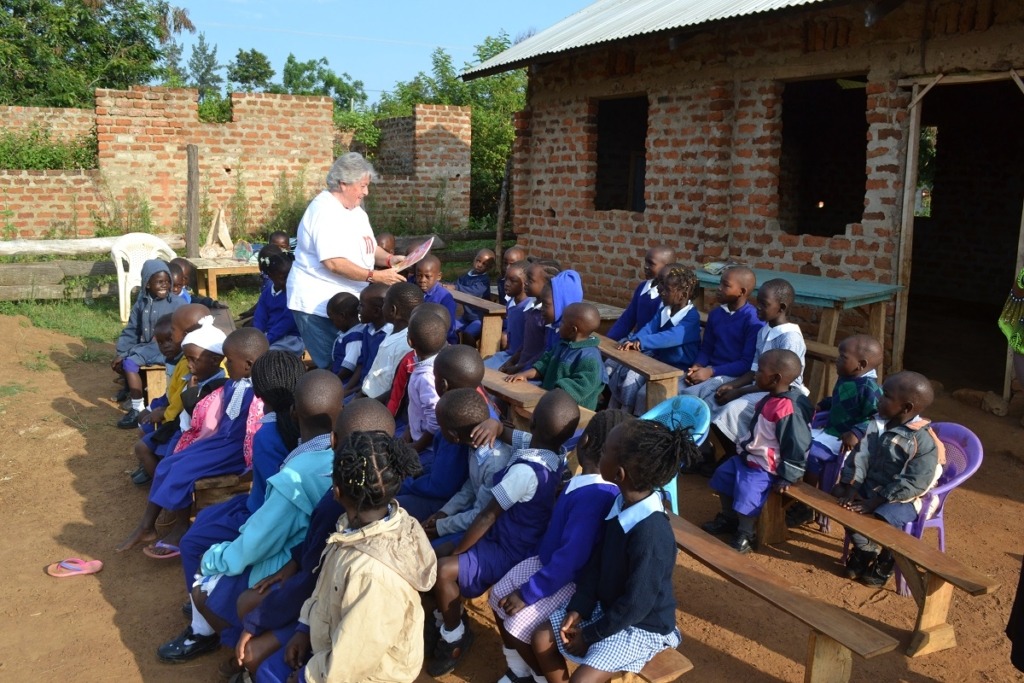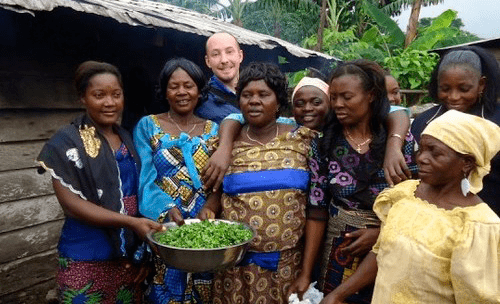
6 Ideas For A Volunteer Holiday
Written by Tracey Bell
“Voluntourism” is fast becoming the trend for both young and old travelers who want to experience the culture of their destination in depth and spend more time engaging with local people. It has also been a source of controversial reports regarding the impact on communities and the potential for exploitation of children and other disadvantaged sectors of the society into which volunteers impose themselves. In this article, we meet Ingrid, an Australian volunteer in Kenya, and Ben, who runs a community-based organisation in Nairobi’s slums which hosts foreign volunteers. They offer their advice to people considering volunteering abroad.
1. Talk To Someone
Most volunteering experiences are found in developing countries, in cultures that are vastly different to what we are generally used to in the developed world. And the projects most volunteers go to are located in slums or disadvantaged areas of that developing country. If you do not know what to expect, the culture shock can be disarming.
Ingrid tells of her experience of not getting adequate information before arriving in Kenya:
“The organisation I signed up with is based in Australia so they weren’t able to give detailed answers to some of my questions about the program in Kenya. I also never got the chance to talk with, Skype or see any local staff until I walked out of the airport in Nairobi. If I got the chance to relive the experience I would make sure this was something the volunteer organisation offered and/or that they had a representative who had recently visited the volunteer program in Kenya who I could talk to.”
She adds:
“Ask lots of questions before you sign up for anything - it is so worth being a question pest rather than leaving (and paying) for the unknown. If you have any friends or family who has volunteered, ask them what they thought, if they would recommend their program and first-hand advice.”
Some good questions to ask your volunteer agency include:
- When was the last time someone from the agency visited the program in country?
- How long have you worked with the volunteer program? And how many volunteers have been there since starting with them?
- Ask to see reviews from past volunteers who volunteered for longer than four weeks (try to find good, bad and average reviews)
- Ask any and all questions about the program, the tasks you will be doing, placements and the people you will be dealing with (hosts, managers, staff, schools, orphans etc.)
- Ask for a detailed invoice of all program fees and flights/insurance (if included) and try to find out the amount of money that actually goes to the local program.
- What is the name of the local organisation running the program? This is a great thing to know as you can then do your own research into program descriptions and reviews.
- Where will I be staying? Ask or do some research about the town so you know what to expect in regards to facilities, stores, groceries and technology available.
- What will be expected of me as a volunteer? Will there be projects for me to do or will I be expected to create them?
- What will I have to pay for when I’m there? (Meals, transport to placements, project expenses)
- Who do I contact once I am over there for complaints, questions or emergencies?
2. Use Your Skills
Please do not be mistaken: as a volunteer you will not be coming to “save Africa” (or whatever your destination). The job of developing a country can only be achieved by the citizens. But if you have skills, then you can contribute to capacity development, which is both needed and appreciated. Much of the conversation around the impact of volunteers is about unqualified and unskilled people landing on the doorstep of a busy NGO and expecting to be entertained for a couple of weeks. There are plenty of unqualified and unskilled people in developing countries, so coming to the other side of the world to dig holes and lay bricks can mean that you are taking paid employment away from someone who really needs it. While this may sound harsh, I have seen the impact of volunteers doing jobs that could be given to locals and it can cause resentment among the community – community projects need to involve the community first and foremost if we truly care about the development of the communities we visit.
Ben from Amani Kibera, a community-based project in the Kibera slum in Nairobi, Kenya, says that they look for volunteers
“who would like to share their skills and learn from what we do. We encourage anyone who would like to add some value to what we are doing to consider volunteering with us. We seek people with specific skills or skills that are related to our work.”
There is no doubt there are skills gaps that can be filled by appropriately qualified foreign volunteers. And for an incredible sense of fulfillment and achievement for your volunteering experience it is worth seeking an organisation that can use your skills to develop their capacity to deliver services.

3. Booking Directly
There are pros and cons of using a volunteering agency and there are pros and cons of finding an organisation in the country and dealing with them directly. Ingrid suggests:
“If you are an experienced globetrotter, look into booking directly through the local organisation as it will save you from paying agency overheads. If you are new to travelling, volunteer agencies can provide you with the extra support and information you will need as well as some ‘western’ legal security and liability.”
While an agency offers security, they may not have access to the right project for you. Ben says that Amani Kibera has not promoted their volunteering opportunities through any agencies. Rather, the volunteers who have come were referred through people who know about Amani Kibera.
There are a couple of online agencies that offer low-cost volunteering experiences. Idealist has a great search function and also offers jobs and internships. Se7en offers free and low-cost volunteering opportunities but you must pay a membership fee to get access to the opportunities.
4. Dealing With Culture
As mentioned earlier, life in a developing country can be quite different to your life at home and it is crucial to ask questions so that your expectations of services and facilities are realistic. As well as living standards (you may be accommodated in a home stay where the toilet is simply a hole in the ground outside), workplace attitudes, ethics, and values can be very different. Ingrid points out that she found this very challenging and she has had to come to understand that this is a different culture and that they run their businesses differently to what she is used to. She is not here to change the culture.
Ben advises foreigners to:
“Be open-minded and ready to learn and share what you know. Learn from their cultures and teach them yours. Flexibility ... is key here.”
5. Fundraising Before You Go
Through meeting other volunteers, Ingrid has found that:
“A lot of volunteers wish they had fundraised before leaving home. There are many things volunteers can do with the extra money such as sponsoring children, buying sports/classroom equipment, gifts etc. Just be aware that white people are already seen as wealthy people and we don’t want to support their expectation that volunteers have loads of money to give away.”
Donating necessary supplies is much less open to corruption than simply donating money. Just ensure the supplies you are bringing are actually useful – which is easier to suss out once you have spent some time at the project. Pack For A Purpose is another way you can ensure your donations are useful, and you do not have to volunteer to participate – any traveler can fill the extra space in their suitcase with school supplies or such.
6. When Things Don’t Go To Plan
It’s inevitable isn’t it? All the best-laid plans can turn to soup regardless of your best efforts. So what do you do when you are stuck in a mud hut in a remote village and your volunteer project just isn’t working out? Ben tells how Amani Kibera deals with confused expectations and other potential upset:
“We speak openly and frequently to our volunteers. The main reason is always to find out if they are ok and if they think their expectations are being met. We also keep evaluating the volunteer’s performance vis-à-vis the organisation’s expectations of them. This kind of engagement tightens the bond and opens up communication amongst members of the organisation and the volunteer such that should anything fail to work as expected, we will discover it on time and fix it. Our main interest is to build lasting bonds.”
Ingrid’s experience was disappointing at first as it seemed the organisation was not prepared. But rather than waiting for the organisation to come up with something, she ended up creating her own projects and enjoyed the freedom of doing that, although it did mean she had to spend extra money to cover those costs.
6 Ideas For A Volunteer Holiday 6 Ideas For A Volunteer Holiday 6 Ideas For A Volunteer Holiday 6 Ideas For A Volunteer Holiday



